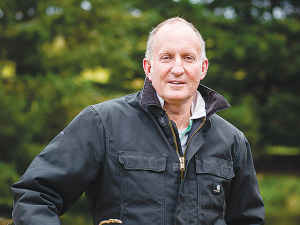Primary sector partners have signalled a united determination to advocate strongly for farmers on emissions pricing.
Earlier this month, the leaders of DairyNZ, Beef+Lamb NZ and Federated Farmers met to discuss emissions pricing and to re-establish a common position between the three organisations.
DairyNZ chair Jim van der Poel says a united voice on emissions pricing is the best way to ensure positive policy outcomes for farmers.
“All three organisations have agreed on nine core principles that we will all be raising in our submissions and through the He Waka Eke Noa partnership.”
The Government’s emission pricing proposal differs significantly from the He Waka Eke Noa recommendations, which were designed as a wholefarm system approach to reduce emissions, meet targets and give fair recognition and reward for on-farm planting. The Government’s subsequent changes have needlessly put the finely balanced cross-sector consensus at risk.
“Our organisations are all united in our determination to get the best possible outcome we can and will continue to work closely together as we advocate for farmers,” says Beef+Lamb NZ chair Andrew Morrison.
Federated Farmers chair Andrew Hoggard said individual organisations will continue to raise sector specific issues.
The current methane targets are wrong and need to be reviewed.
The methane price should be set at the minimum level needed and be fixed for a five-year period to give farmers certainty.
Any levy revenue must be ringfenced and only be used for the administration of the system, investment in R&D, or go back to farmers as incentives.
The future price should be set by the Minister on the advice of an independent oversight board appointed by all He Waka Eke Noa partners.
The system must incentivise farmers to uptake technology and adopt good farming practices that will reduce global emissions.
All sequestration that can be measured and is additive should be counted.
Farmers should be able to form collectives to measure, manage, and report their emissions in an efficient way.
Farmers who don’t have access to mitigations or sequestration should be able to apply for temporary levy relief if the viability of their business is threatened.
We will not accept emissions leakage.



















